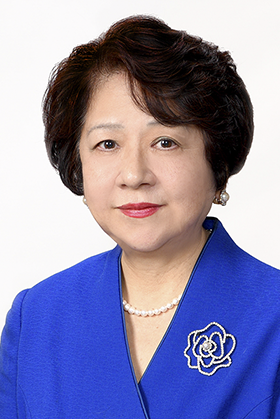
President’s Message
My name is Junko Wake of Tokyo Metropolitan University and I was appointed to the 9th (30th overall) President of the Japanese Society for the Study of Social Welfare (JSSW) at its 2024 General Meeting and the subsequent extraordinary Board Meeting held on May 26th, 2024. Although I feel that I may lack the skills, I intend to do my best over the next two years to respond to changing times and take members’ needs into account, and to work together with Board Members and various Committee Members to ensure that the foundations of social welfare studies are firm and that this discipline undergoes further development.
This year marks the 70th anniversary of the founding of our Society. Over this time, the environment surrounding social welfare studies has changed greatly. The number of members increased significantly around 2000 when the Long-Term Care Insurance Scheme was introduced. At that time, the shift from the post-war system of mandated public assistance to a system of service provision based on contracts was implemented, and privatization and interdisciplinarity led to many researchers and practitioners from other fields close to social welfare studies joining JSSW. It was a time when the universality and mainstreaming of social welfare studies were being promoted. However, since then, due to population decline and aging combined with low birthrates, a series of academic societies specializing in particular fields of social welfare have been established, once again questioning the unique significance and role of the Society.
Considering this situation, JSSW has begun several new initiatives to accurately grasp the diverse needs and research interests of its members who are our constituents, and to support their research activities in an increasingly diverse society. For example, we introduced a long-term membership system in 2022. This system is designed for members who are over 65 years old and have been members of the association for 25 years or more but have retired from full-time employment, and encourages them to continue their research activities at JSSW after retirement by reducing or exempting their membership fees. In addition, we are engaged in various initiatives to expand research support for graduate students and early career researchers, such as promoting mutual exchange using digital tools. Furthermore, the Committee for the Promotion of International Academic Exchange, in addition to the existing collaboration with mainland China and South Korea, plans to actively promote exchange with other countries too, including Western ones. In the previous term, we established the Working Group on JSSW’S Future and have been discussing the future of the Society from the perspective of young executives. Beginning this term, we will further develop the Working Group into a permanent Committee for JSSW’s Basic Vision and entrust them to consider a more specific vision in view of the next 10 years.
In the post COVID-19 pandemic era, the rapid advance of digitalization is changing the way we live and the nature of society. The same is also true for research, education, and practice in the field of social welfare studies. While digitalization is improving accessibility and increasing financial efficiency, there are also many people who are being left behind by these changes. The Leave No One Behind motto of the SDGs is a fundamental value in social welfare studies, and we must reaffirm this now more than ever as disparities continue to grow. Moreover, there is a need for further exploration and refinement of systems and practices that Leave No One Behind.
Further on, the invasion of Ukraine by Russia, the intensification of the conflict in Palestine, and the constant occurrence of natural and human disasters around the world threaten our lives and livelihoods. At the same time, as invisible anxiety, loneliness and isolation become more and more serious today, it is no exaggeration to say that the role of social welfare studies is expanding and deepening. I hope that JSSW and its members will reaffirm their own mission and role, and continue to move forward, with the intention and determination to advance the interaction between people, society and the global environment in a sustainable manner and to pass it on to future generations.
